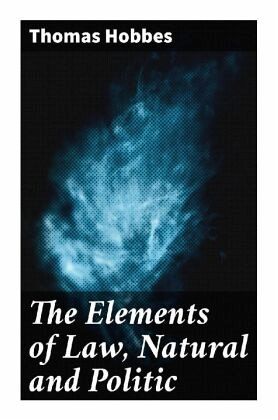
The Elements of Law, Natural and Politic
Versandkostenfrei!
Versandfertig in 6-10 Tagen
7,99 €
inkl. MwSt.
Weitere Ausgaben:

PAYBACK Punkte
4 °P sammeln!
In "The Elements of Law, Natural and Politic," Thomas Hobbes systematically dissects the nature of human beings and the foundational principles of political organization. Written during the early 17th century, the text serves as a precursor to Hobbes's more famous work, "Leviathan," employing a rigorous logical framework that interweaves philosophy with political theory. Hobbes argues that the state of nature-characterized by chaos and violence-necessitates a social contract, wherein individuals surrender certain freedoms to a sovereign authority for the sake of security and order. His incisiv...
In "The Elements of Law, Natural and Politic," Thomas Hobbes systematically dissects the nature of human beings and the foundational principles of political organization. Written during the early 17th century, the text serves as a precursor to Hobbes's more famous work, "Leviathan," employing a rigorous logical framework that interweaves philosophy with political theory. Hobbes argues that the state of nature-characterized by chaos and violence-necessitates a social contract, wherein individuals surrender certain freedoms to a sovereign authority for the sake of security and order. His incisive analysis oscillates between moral philosophy and legal theory, grounding its conclusions in a recognition of human desires and fears. Hobbes, an English philosopher, was deeply influenced by the tumultuous political climate of the English Civil War. His upbringing and education fostered a keen interest in philosophy, science, and mathematics, which permeate his writings. This intellectual background enables Hobbes to explore the complexities of human nature and governance, ultimately leading to his revolutionary ideas about the necessity of a powerful sovereign to maintain peace. Engaging and provocative, "The Elements of Law, Natural and Politic" is highly recommended for readers intrigued by political philosophy, ethics, or the origins of social contracts. Hobbes's insights into the human condition resonate through the ages, making this an essential read for anyone seeking to understand the underpinning theories of modern political thought.













